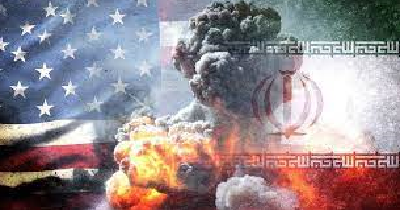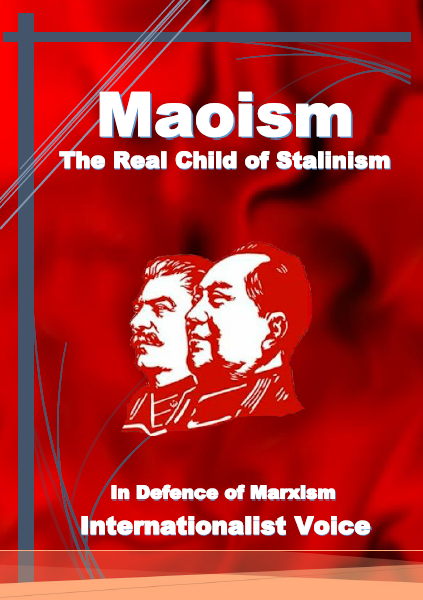Neither Erdoğan nor İmamoğlu—Class Struggle is the Only Path Forward!
In recent years, the Turkish government’s policies to expand its regional influence, particularly in Syria and the Caucasus, have positioned the country as a key player in regional developments. The government’s negotiations with the Kurdistan Workers’ Party, aimed at resolving the Kurdish issue in Turkey and Syria and ending four decades of armed conflict, were seen as a major success for the ruling class. With a sense of being at the height of its power, the government pursued its domestic and foreign policies with greater confidence. However, beneath this display of strength, internal tensions between different factions of the Turkish bourgeoisie gradually intensified. What is unfolding in Turkey today is not merely a power struggle between bourgeois factions, but a reflection of a deeper crisis within the country’s capitalism, which has now triggered one of the largest protests in the past decade.
The spark for the protests on 20th March 2025 was ignited amid a power struggle between bourgeois factions, following the arrest of Ekrem İmamoğlu, the Mayor of Istanbul and opposition candidate for the Republican People’s Party in the 2028 presidential elections, by security forces.[1] The prosecutor’s office has charged him with ‘extortion and fraud,’ ‘corruption,’ and ‘collaboration with a terrorist organisation’ (the Kurdistan Workers’ Party).
Following the arrest, the Turkish government imposed a nationwide ban on all demonstrations for four days. However, despite this, thousands of people, particularly students, took to the streets in Istanbul, Ankara, and other cities across Turkey to protest. The demonstrators chanted slogans such as ‘Rights, Law, Justice!’, ‘ Erdoğan, Dictator!’ and ‘İmamoğlu, You Are Not Alone!’. The protests spread to more than 12 cities, becoming one of the largest movements of protest in the past decade. The riot police responded with water cannons, tear gas, and rubber bullets in an attempt to suppress the protesters.
The Republican People’s Party, as the leading opposition party, has characterised the arrest of İmamoğlu as a ‘coup’ and regarded it as a political manoeuvre to eliminate one of Erdoğan’s primary rivals and remove the Republican People’s Party’s contender from the 2028 presidential race. Özgür Özel, the party leader, has urged his supporters to take to the streets in protest but to avoid resorting to violence.
The judiciary has issued a warning to those who challenge the ‘neutrality and independence’ of the judicial system. As of the time of writing, hundreds of protesters have been arrested, with dozens detained for sharing content on social media. Furthermore, access to certain social media platforms has been restricted. Erdoğan has accused the Republican People’s Party of trying to destabilise peace and polarise society, asserting that the government will not succumb to sabotage or street intimidation.
The widespread protests in Turkey triggered chaos in the country’s financial markets. Turkish stocks plummeted by around 7%, while the crisis severely impacted the value of the Turkish lira. The lira fell by 12%, reaching its lowest point against the US dollar, underscoring the deep negative consequences of the political crisis on the nation’s economy. These sharp economic fluctuations intensified concerns about Turkey’s financial stability and exerted significant pressure on the currency market.
The working class should not fall into the trap of democratic movements. Worse still, turning workers into a black army in the power struggle between bourgeois factions under the guise of a democratic movement will only serve to weaken and incapacitate this class. For the wage slave, it makes no difference whether Erdoğan or ‘İmamoğlu holds power. Has the Republican People’s Party, which was the sole ruling party in Turkey for decades, improved the condition of workers during its rule? Was the life of workers under this party’s leadership better than under others? We must fight for our class interests. Instead of slogans such as ‘Erdoğan, Dictator!’ and ‘İmamoğlu, You Are Not Alone!’, distancing ourselves from such rhetoric and focusing on proletarian class demands will steer the protests towards class struggle. Our slogans should be against wage slavery, exploitation, unemployment, layoffs, and inflation. In other words, we must challenge the very foundations of the capitalist system.
The proletariat must seize the initiative and shape historical events. This class must unite the youth, students, and other sections of society, rather than being ensnared by democratic movements. Particularly at a time when the class struggle is steadily growing and the proletariat has the potential to influence historical change, it is essential for this class to play a leading and decisive role in these developments.
The working class of Turkey, as a battalion of the global working class, has a rich history of remarkable struggles. To summarise, some key examples include: the June 1970 uprising, which saw tens of thousands of workers take to the streets in Istanbul and other industrial cities; the heroic struggles of Tekel workers in 2010; and the wildcat strike by metalworkers at the Çimsaşat factory in Mersin in January 2022, which was suppressed with the help of trade unions. These workers’ struggles could have become a model for others, but the trade unions intervened to suppress them.
In the absence of an independent committee, union officials such as Mehmet Kurt managed to wrest control from the workers and place it firmly in the hands of the union. After the union successfully crushed the workers’ protests, the workers themselves said they had to settle accounts with the union before they could face their employer. The wildcat strike by textile workers in 2023, which was only brought to an end through brutal police repression, serves as another example of such struggles. More recently, we have witnessed protests and strikes by workers outside the control of trade unions in municipalities governed by the Republican People’s Party, including the fierce strike by municipal workers in Şişli, Istanbul, as well as protests by workers from the municipalities of Beşiktaş, Seyhan, and Afşin, all of which are also under the control of this party (Republican People’s Party).
One of the most notable struggles took place in 2015, when workers rose up against both employers and trade unions. The wildcat strike by automotive workers in factories across Turkey, which disrupted the production of European car manufacturers, stands out as a prime example of these struggles. The strike began in the industrial city of Bursa at the Renault factory. On May 14th, after a full shift vote, the workers decided to strike and formed a strike committee. They set up tents on the factory grounds, with food and water sent in from outside. This strike spread to the Ford automobile factory in Eskişehir and other suppliers of car parts. These struggles were so significant and influential that they later became the subject of academic theses aimed at exploring their causes. The abstract of one such thesis states:
“With the increasing poverty and rising social injustice in Turkey, the working class’ grievances have recently become more visible in the public. In this sense, Turkish society witnessed one of the most disruptive and crowded labor strikes during the neoliberal capitalist era in 2015. During these strikes, metal workers mainly targeted the hegemonic partnership of employers and pro-employer trade union, Turkish Metal Union (TM). Both the rising poverty in the social and economic conditions of workers and the untenable forms of practices by the hegemonic partners led workers to rely on their own power and go on a wildcat strike.”[2]
As mentioned, the Turkish proletariat has a rich history of remarkable struggles. This class must draw on this historical memory and the achievements of past battles, and instead of becoming a black army, it must take the lead in the class struggle. The future of our movement depends entirely on our ability to fight. It is only through class struggle, and from the class terrain, that we can repel the attacks of the bourgeoisie. We must expand our struggle independently of all bourgeois factions and movements, directly confronting capitalism. Our interests lie not merely in changing the ruling class—that is, replacing Erdoğan with İmamoğlu—but in the class struggle itself. Due to its inherently anti-capitalist nature, class struggle, in its development, will not only spread to other capitalist countries but will also challenge capitalist states.
The Future Belongs to the Class Struggle!
M.J.
24 March 2025
Notes:
[1] In 1999, Recep Tayyip Erdoğan, then Mayor of Istanbul, was arrested for reciting a poem deemed to violate the principle of secularism enshrined in Turkey’s constitution. After spending four months and ten days in prison, he returned to the political scene with increased popularity. Now, with the arrest of Ekrem İmamoğlu, the current Mayor of Istanbul, a similar situation has unfolded, and his political prominence in Turkey has grown.
[2]BEYOND LIMITS: THE MOBILIZATION OF A WILDCAT STRIKE IN TURKEY-ALĠCAN ÇAĞRI GÖKÇEK- BOĞAZĠÇĠ UNIVERSITY-2019
Download as PDF















